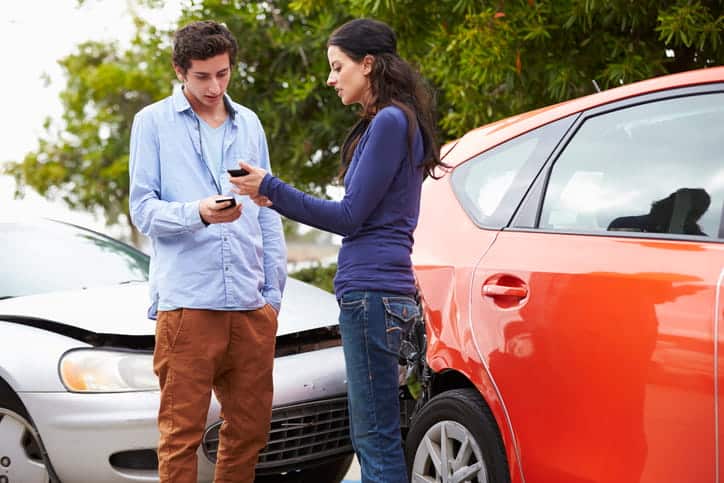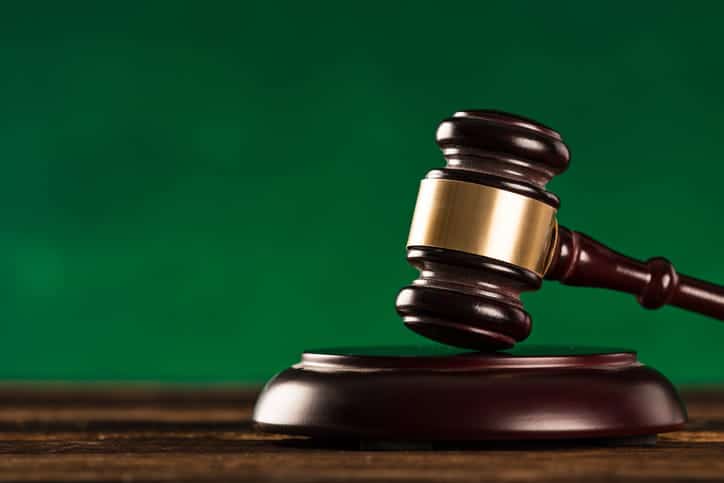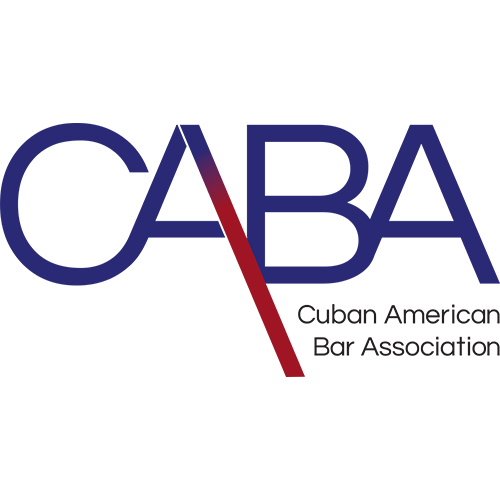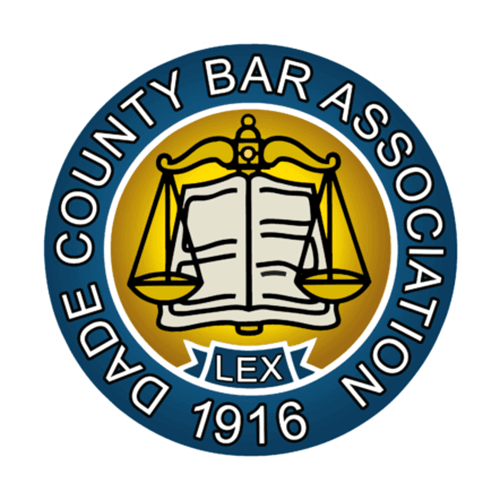Florida Distracted Driving Car Accidents
According to the National Highway Traffic Safety Administration (NHTSA), distracted driving accidents claimed 3,308 lives in the U.S. in 2022 and injured over 289,300 people. NHTSA defines distracted driving as any activity that diverts the driver’s attention from the motor vehicle. As technology and personal electronic devices have increased exponentially in the past year, distracted driving has become more of a risk.
Florida is among the states trying to curtail distracted driving. The state of Florida has laws that prohibit texting while driving. Florida law also allows the victim of a distracted driving-related crash to work with a Florida car accident lawyer to bring a legal claim for compensation. Here’s what you need to know about distracted driving car accidents in Florida.
How Common Are Distracted Driving Accidents in Florida?

In Florida, distracted driving accidents are a significant issue affecting motorists. The state recorded over 54,700 distracted driving-related crashes in 2023, accidents responsible for 299 fatalities, and over 2,500 severe injuries.
Fatal accidents involving teenage drivers include more distracted driving accidents than all other age groups. However, distracted driving remains a serious issue for drivers in their twenties — almost 50% of all distracted driving accidents in 2023 involved drivers under 30.
What Are the Types of Distractions While Driving?
These three main types of distracted driving cause accidents:
- Cognitive: Your mind is essential when driving because you use it to process changes in driving conditions and determine appropriate responses to those changes. When personal conflicts, plans, or work tasks consume your thoughts, these cognitive distractions make you less likely to notice changes in road conditions and respond appropriately, which can lead to accidents.
- Manual: Drivers use their hands to control the steering wheel, activate turn signals, start and stop the windshield wiper blades, and change gears if they drive a stick shift. Removing one or both hands for other purposes qualifies as a manual distraction. Manual distractions include things like eating and drinking while driving. Using your hands for other activities reduces your response time while driving.
- Visual: Keeping your eyes on the road is crucial because you must see obstacles or changes in road conditions to respond appropriately and avoid accidents. Visual distractions include billboard signs, people in your vehicle, books, smartphones, food, or notes. Anything that prompts you to look away from the road qualifies as a visual distraction.
Auditory distractions, which are sounds that shift one’s focus from driving, can also cause or contribute to distracted driving accidents. Examples include crying children, passenger conversations, loud music, and honking.
The Most Common Actions That Cause Distracted Driving
There are several common causes of distracted driving:
Texting and Driving
Although Florida law allows hands-free texting, texting can contribute to distracted driving accidents because drivers may take their hands, eyes, and minds off the road to engage in text exchanges.
Florida’s Texting While Driving Laws
Florida has laws prohibiting texting while driving — Florida law 316.305 bans texting while driving in Florida. Texting means typing in letters, numbers, symbols, or characters on your phone. It can also mean reading data for the purpose of non-voice communication. Emails, texts, instant messages, Facebook, Instagram, and Snapchat are all examples of non-voice communication. Florida’s texting-while-driving laws are part of Florida’s traffic control laws.
Exceptions to Texting While Driving Laws
Florida’s texting-while-driving ban contains some important exceptions. Some of the exceptions apply only to law enforcement officials, while other exceptions apply to everyone. Here are the exceptions to the texting and driving ban in Florida:
- Law enforcement officers who are using computers and phones in their work
- Emergency responders like EMTs and firefighters who are using it for their work
- GPS navigation systems
- Receiving safety information like weather and traffic alerts
- Data used by the motor vehicle (setting your cruise control, for example)
- Listening to the radio
- Bluetooth and other communications if you can use them without texting or reading
- Autonomous vehicle technology
If you can talk on the phone hands-free, that’s allowed. A system that syncs your phone call through your car is acceptable, too. You’re also free to use navigation apps like Garmin or Google Maps while you drive.
Can the Police Pull You Over for Texting While Driving in Florida?
While texting while driving is illegal in Florida, the police can’t pull you over for texting while driving. As of May 2019, texting while driving is a secondary traffic offense in Florida. A secondary offense is a traffic law violation that doesn’t allow the police to stop the vehicle. If the police see you breaking another traffic law, they can cite you for texting while driving when they write you up for the other offense. However, they can’t stop you for texting while driving alone.
Talking on the Phone
Florida laws do not prohibit drivers from talking on their cell phones while driving. Although legal, using a cell phone can cause a distracted driving accident because drivers may look away from the road while answering or entering a phone number. Cell phones can also cause cognitive distractions because drivers may be focused on the person calling or the reason for the call instead of focusing on road conditions.
GPS and In-Car Entertainment Systems
GPS devices are essential tools for many drivers. Still, they can serve as auditory, manual, and visual distractions while driving, particularly if drivers must choose a new route because of an accident or road closure.
Entertainment systems allow us to listen to news, talk radio, and music while driving. Changing stations can shift your mental focus and cause a manual distraction. Some vehicles have video systems for passengers, and activating those systems can also cause drivers to take their minds, hands, and eyes off the road.
Eating and Drinking
Eating and drinking while driving are commonplace activities many drivers engage in regularly. Although many can eat and drink while driving without incident, drivers are taking their hands away from the steering wheel. They may also look away from the road while picking up their food or drink. Incidents while eating or drinking may also cause further distractions. Suppose a driver spills food or hot coffee on themselves. They may reach over to locate napkins in their glove compartment and try to wipe off the food or drink. During this time, their hand is off the steering wheel, they may take their eyes off the road, and their focus may be on their clothes rather than driving conditions.
Children and Pets
Children and pets can be loud and unpredictable while driving. Drivers may have their focus divided if they monitor their child or pet. They may also remove their hand from the steering wheel to give their child or pet a snack while in transit. Children and pets can also cause auditory distractions.
Passengers
Passengers of all ages can cause distracted driving. Arguments or lively conversations with passengers may cause auditory or cognitive distractions. Interactions with passengers can also prompt drivers to take their eyes off the road.
What Should I Do if I Am in an Accident and I Suspect the Driver Was Distracted?
These are some steps everyone should follow after a traffic accident:
- Check for injuries: Assess your condition and the condition of those in your vehicle.
- Check other drivers: If you are physically able and it is safe to do so, check on those in other vehicles to determine if others are injured.
- Call 911: You must report accidents involving injuries, fatalities, or property damage of $500 or more. Law enforcement officers can complete a police report, which can be valuable if you file an insurance claim or lawsuit.
- Exchange driver information: You should provide your name, contact information, and insurance information to other drivers involved in the accident. Those drivers should provide you with that information as well. Suppose a driver refuses to provide their information. In that case, you can notify the police and ask them to relay that information.
- Document the scene: Use your smartphone to photograph the vehicles and people involved, license plate numbers, the accident scene, vehicle damage, and anything else that may be relevant, such as malfunctioning traffic lights or weather conditions. Make a note of any evidence that suggests the at-fault driver was distracted.
- Gather witness information: Make a note with witness information. Include the names and contact details of anyone who saw the crash. You can give this information to your attorney so they can contact witnesses during their investigation.
- Contact your insurance company: Notify your company about the crash as soon as possible.
- Contact a car accident lawyer: You can call a car accident lawyer while still at the accident scene and receive a free consultation. The attorney will remind you of the steps to take and explain what you are and are not obligated to do. The attorney will remind you not to accept fault for the accident and that you do not have to answer questions from law enforcement.
- Seek medical attention: An attorney will remind you to seek medical care. You may have internal injuries, but be in shock and not realize you’re injured. A thorough assessment after the accident ensures you receive a swift diagnosis and prompt treatment. Your medical records are also crucial evidence if you file a lawsuit.
Consulting a car accident lawyer is the most effective way to ensure you take steps to protect yourself. The lawyer will explain your rights. The lawyer will also explain the compensation you can seek so you understand how much compensation you may forfeit if you file a claim instead of a lawsuit. Tell your attorney why you believe the at-fault driver was distracted and provide any supporting evidence so they can confirm that distracted driving played a role in the accident during their investigation.
NO FEES UNLESS WE WIN
Protecting Your Rights Since 1983
Talk to Bernstein & Maryanoff Injury Attorneys today to find out how to protect your rights after a distracted driving accident.
Hablamos Español
Can I Sue if a Distracted Driver Injures Me?
Filing an insurance claim is one option you can consider after your accident. You file this claim with the at-fault driver’s insurance company. The driver’s insurance policy will cover some accident expenses. However, depending on the severity of the crash and your injuries, a claim may not cover all the damages you deserve.
You can bring a lawsuit if you’re in a distracted driving car accident in Florida. When you suffer serious or permanent injuries because of another driver’s texting or other distractions, the driver may be liable to you for your injuries. To win your case, you must show that the other driver acted negligently. Distracted driving is a form of negligence.
Damages
Most lawsuits involve claims for economic and non-economic damages.
Economic damages are accident expenses. You can seek reimbursement for any expenses you incurred because of the accident, including the following:
- Burial costs
- Childcare bills
- Funeral expenses
- Job retraining
- Lost income
- Medical bills
- Personal care costs
- Property damage bills
- Transportation expenses
You can seek non-economic damages as compensation for the personal toll you’ve endured because of your accident. Grounds for these damages include the following:
- Anxiety
- Depression
- Loss of intimacy
- Loss of quality of life
- Pain and suffering
- Phobias
- Post-traumatic stress disorder
What Is the Penalty for Distracted Driving in Florida?
The penalty for distracted driving in Florida is a monetary fine. Distracted driving in Florida is a non-moving violation. A non-moving violation doesn’t negatively impact your driver’s license. However, law enforcement could also charge you with careless driving for things that amount to distracted driving. In addition, you may face civil liability if anybody gets hurt because you were distracted behind the wheel.
What Are My Rights if I’m Hurt Because of Distracted Driving in Florida?
If you’re seriously hurt because of distracted driving in Florida, you have the right to financial compensation. Distracted driving is a form of negligence. Negligence means not being careful enough. If another driver is careless by driving distracted, and you get hurt as a result, they may owe you financial compensation.
A distracted driving lawsuit is a civil claim brought by the victim of a car accident. You must have injuries that are serious or permanent. You may receive compensation for all of the losses that you have because of the accident, including your medical expenses, time away from work, property damage, mental injuries, physical suffering, and emotional anguish.
What Do I Need To Prove To Win My Distracted Driving Case in Florida?
To win a distracted driving case in Florida, you need to prove the following:
- Duty: The other driver had a duty to drive carefully. All drivers have a duty to be careful on the roads, so this element is always easy to prove.
- Breach of duty: You must prove that the driver who caused the accident wasn’t careful enough on the road. Texting while driving is strong evidence of carelessness.
- Causation: The other driver’s distracted driving must be the cause of your injuries.
- Damages: You must have financial losses because of your injuries. There’s no legal claim for near misses. You must have actual injuries.
How Do I Prove Distracted Driving in a Car Accident Lawsuit?
To prove that the other driver was texting and driving at the time of the crash, you rely on the discovery process. You investigate the case and build your evidence. For example, you look at the police officer’s investigation to see if the officer recorded any admissions from the other party. You talk to witnesses both inside the other vehicle and bystanders who may have seen the texting activity.
You can use depositions, interrogatories, and subpoenas to gather evidence from the other party and third parties. You may even ask for a forensic examination of the other party’s cell phone. What to do in your case depends on the exact circumstances.
How Can an Attorney Help Me if a Distracted Driver Has Injured Me?
Hiring experienced Miami car accident attorneys after a distracted driving accident ensures you receive expert legal guidance after your accident. Your attorney will oversee a thorough accident investigation and use their findings to determine which drivers were at fault for the accident. They’ll use the evidence collected to support your claim or lawsuit. After they help you calculate the damages you deserve, they’ll negotiate with the at-fault party’s insurance company. Your attorney will present evidence to support your claim and justify a fair settlement without going to trial. Suppose they’re unable to secure fair compensation through negotiations. In that case, they’ll present evidence at trial and fight for you to receive the maximum damages available.
If You Have Been Injured by a Distracted Driver, Let Bernstein & Maryanoff Injury Attorneys Fight for You

Have you been hurt by a distracted driver? Are you wondering what to do next? Our Miami car accident attorneys can help. We’ve helped hundreds of accident victims just like you. We work aggressively to ensure you have professional representation that protects your interests after a distracted driving accident. There’s no cost to speak with a member of our team. Call us today.
NO FEES UNLESS WE WIN
Protecting Your Rights Since 1983
Contact Bernstein & Maryanoff Injury Attorneys for a free legal consultation regarding your distracted driving accident.
Hablamos Español
Sources:
Facts About Teen Distracted Driving. (2024).
Involved in a Crash? (2024).
NHTSA Launches Put the Phone Away or Pay Campaign; Releases 2023 Fatality Early Estimates. (2024).
Perez, P. (2024). Distracted driving crashes on the rise in Florida, troopers say.
The 2023 Florida Statutes (including Special Session C): 316.1925. (2024).
2013 Florida Statutes: 316.305. (2024).





